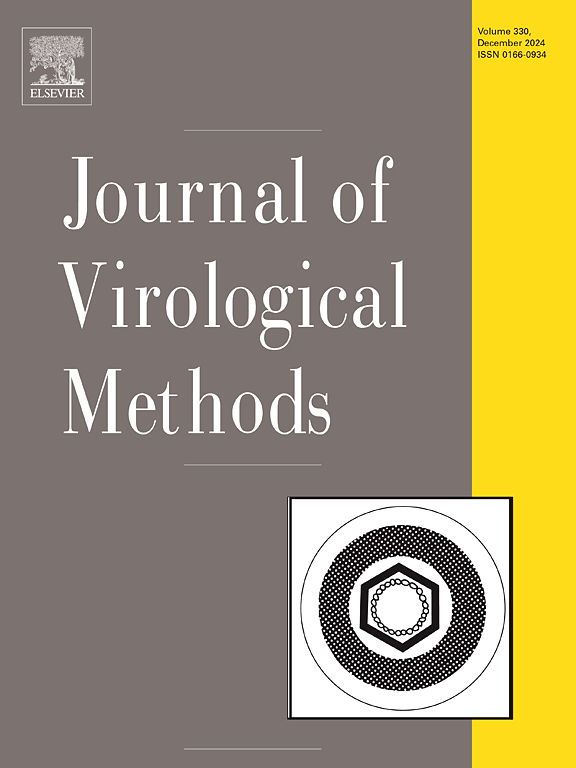Endothelial growth media components alter SARS-CoV-2 spike-directed growth kinetics
IF 1.6
4区 医学
Q3 BIOCHEMICAL RESEARCH METHODS
引用次数: 0
Abstract
Direct SARS-CoV-2 infection of endothelial cells is challenging to study in vitro. To examine whether endothelial cell culture conditions impact the ability of SARS-CoV-2 to infect cells, we evaluated the effects of commercial cell culture media composition on SARS-CoV-2 Spike-directed viral infection. In African Green Monkey kidney epithelial cells (VeroE6), we found that commercial cell culture media (EGM2) produced inhibitory effects on recombinant vesicular stomatitis virus (rVSV-SARS-CoV-2) growth that is not seen in Dulbecco's Modified Eagle Medium (DMEM). We identified Lonza’s GA-1000 supplement as a potential SARS-CoV-2 inhibitor. We then compared how titrations of GA-1000 influenced rVSV-SARS-CoV-2 and SARS-CoV-2 infection. The determined IC50 of GA-1000 is observed at a 1:450 dilution, about 2-fold higher concentration than the typical cell culture concentration, against rVSV-SARS-CoV-2. In contrast, the inhibition against SARS-CoV-2 infection is modest. This work highlights the importance of cell culture medium selection for in vitro models of infections and demonstrates a method to characterize and ameliorate media formulations for infection studies.
内皮生长介质成分改变SARS-CoV-2尖峰导向生长动力学
在体外研究SARS-CoV-2直接感染内皮细胞具有挑战性。为了研究内皮细胞培养条件是否会影响SARS-CoV-2感染细胞的能力,我们评估了商业细胞培养基组成对SARS-CoV-2刺状病毒感染的影响。在非洲绿猴肾上皮细胞(VeroE6)中,我们发现商业细胞培养基(EGM2)对重组水泡性口炎病毒(rVSV-SARS-CoV-2)的生长产生抑制作用,这在Dulbecco's Modified Eagle Medium (DMEM)中没有发现。我们确定龙沙的GA-1000补充剂是一种潜在的SARS-CoV-2抑制剂。然后,我们比较了GA-1000滴定对rVSV-SARS-CoV-2和SARS-CoV-2感染的影响。测定的GA-1000抗rVSV-SARS-CoV-2的IC50浓度为1:450,比典型细胞培养浓度高约2倍。相比之下,对SARS-CoV-2感染的抑制作用是温和的。这项工作强调了细胞培养基选择对体外感染模型的重要性,并展示了一种表征和改进感染研究培养基配方的方法。
本文章由计算机程序翻译,如有差异,请以英文原文为准。
求助全文
约1分钟内获得全文
求助全文
来源期刊
CiteScore
5.80
自引率
0.00%
发文量
209
审稿时长
41 days
期刊介绍:
The Journal of Virological Methods focuses on original, high quality research papers that describe novel and comprehensively tested methods which enhance human, animal, plant, bacterial or environmental virology and prions research and discovery.
The methods may include, but not limited to, the study of:
Viral components and morphology-
Virus isolation, propagation and development of viral vectors-
Viral pathogenesis, oncogenesis, vaccines and antivirals-
Virus replication, host-pathogen interactions and responses-
Virus transmission, prevention, control and treatment-
Viral metagenomics and virome-
Virus ecology, adaption and evolution-
Applied virology such as nanotechnology-
Viral diagnosis with novelty and comprehensive evaluation.
We seek articles, systematic reviews, meta-analyses and laboratory protocols that include comprehensive technical details with statistical confirmations that provide validations against current best practice, international standards or quality assurance programs and which advance knowledge in virology leading to improved medical, veterinary or agricultural practices and management.

 求助内容:
求助内容: 应助结果提醒方式:
应助结果提醒方式:


